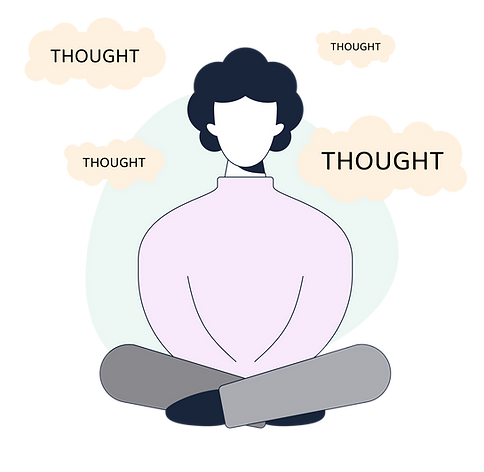Mindfulness Therapy
Mindfulness is the process of bringing our attention to thoughts,
feelings and sensations occurring in the present moment through the practice of meditation.
Whether you are looking to reduce stress and anxiety, overcome depression, increase focus or just learn how to live more in the present I am here to guide you on your journey into mindfulness.
Mindfulness-Based Cognitive Therapy
Mindfulness-Based Cognitive Therapy (MBCT) is a type of psychotherapy that combines cognitive therapy, meditation and the cultivation of present-orientated, non-judgemental attitude called Mindfulness. I use Mindfulness-based therapies as part of my treatment plans to help clients overcome:
Anxiety
Depression
Panic attacks
Stress
Relationship breakdowns
Alongside my private practice I am in partnership with the NSPCC as the 'Official NSPCC Mindfulness Ambassador'
Mindfulness-Based Therapy

Mindfulness Practice
With extended periods of Meditation and Mindfulness exercises we are able to step back and get a sense of distance from our thoughts.
We realise thoughts are not facts, they are just mental events that we can learn to respond to skilfully, allowing us a space to choose our response instead of running off old habits of the mind.
Mindfulness-Based Cognitive Therapy
Mindfulness-Based Cognitive Therapy (MBCT) was specifically designed to help people with recurrent depression.
This evidence-based programme offers secular, intensive mindfulness training to help break the negative thought patterns that are characteristic of recurrent depression, including techniques such as:
Cognitive therapy
Meditation
Breathwork

Research Into Mindfulness Therapy
In clinical studies, mindfulness-based applications have been shown to significantly reduce:
Anxiety and panic (Kabat-Zinn et al. 1992)
Depression and anger
Chronic pain (Kabat-Zinn et al. 1998)
Stress (Astin 1997), Binge eating (Kristeller 1999)
MBCT is recommended by the National Institute for Health and Care Excellence (NICE) as a treatment for recurrent depression. Evidence shows MBCT can, on average, reduce the risk of recurrent depression by 43% (Mark et al. 2014).


